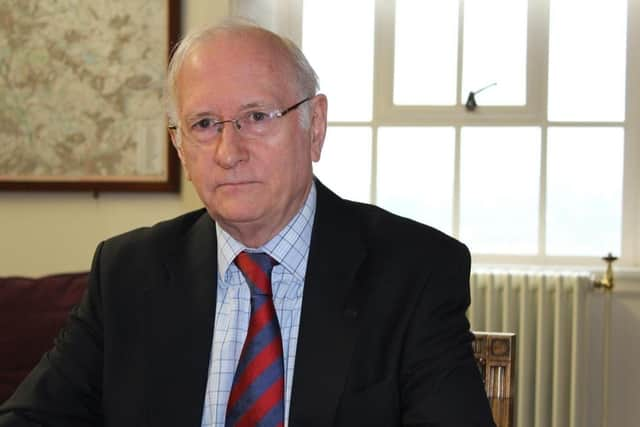Doncaster burglaries report puts downer on city following King's visit - Dr Alan Billings
I went with the Chief Constable to meet them in the appropriately grand setting of the Mansion House, together with the Lord Lieutenant, two elected mayors, local MPs, the diocesan bishop and others.
The occasion went very well and was well policed. No eggs were thrown – ‘waste not, want not’ is South Yorkshire’s motto – and the children outside the Mansion House were in good voice. Before the King spoke, there were brief speeches from the civic mayor and the Mayor, but the words that drew lengthy applause were confidently and faultlessly delivered by nine year old Amelia Beckingham, the junior civic mayor, from Copley School, Sprotbrough. It was a joyful and positive occasion for Doncaster.
Advertisement
Hide AdAdvertisement
Hide AdWhat a pity, therefore, that on the same day, the BBC chose to broadcast a national story about unsolved burglaries using a street in Doncaster as the starting point. Burglaries that do not result in a charge are a worry everywhere in the country and the reporter gave disturbing national statistics, but he interspersed this with the distressed voices of some Doncaster residents. For Doncaster, the good news of the King’s visit was soured by the juxtaposition of this report of unsolved crimes.


The report was long on identifying the issues – such as low rates of charging for burglaries, five per cent, but very short on explaining why this might be the case and even shorter on teasing out what might be done about it.
If anything – especially after the local voices were aired – the impression was given that for unfathomable reasons, police nationwide just won’t turn out when it comes to house breaking. We were left feeling anxious but none the wiser.
The reasons that burglaries are hard to detect are not hard to understand. Offenders know how to avoid leaving fingerprints or DNA. They know that even where there is CCTV, if they wear a balaclava or pull the peak of their baseball cap down, they can keep their face hidden from the camera. If they come in a vehicle they will use false number plates. Often, therefore, there may be little immediate forensic evidence.
Advertisement
Hide AdAdvertisement
Hide AdDetectives have to get smarter by building a picture – does this burglary fit a wider pattern? Are there known offenders in the area? and so on – if a case is going to be made that will satisfy the Crown Prosecution Service and then the courts.
There is a lot of preventive work going on that was not mentioned – the use of Smartwater to mark possessions, the identification of hot spots and patrols in those areas, the more intensive management of ex-offenders, the installation of ANPR cameras, and so on.
And South Yorkshire police seek to visit at some point every house burglary and officers have a checklist to ensure that all possible lines of enquiry have been followed up.
But I was still left puzzled by the overall tenor of the reports.
Advertisement
Hide AdAdvertisement
Hide AdWe don’t blame ambulance drivers because people may be waiting for an ambulance for many hours. Nor do we blame consultants or nurses because operations are having to be postponed.
We understand what years of underfunding and austerity did to these public services. So why do we suppose that policing is any different?
A shortened version of the Police and Crime Commissioner for South Yorkshire’s latest blog post.